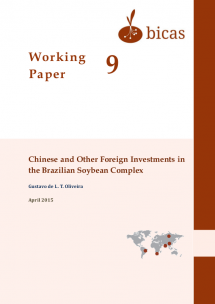Ideas into movement
Boost TNI's work
50 years. Hundreds of social struggles. Countless ideas turned into movement.
Support us as we celebrate our 50th anniversary in 2024.

As Brazil and China become the world’s leading exporter and importer of soybeans respectively, Chinese companies have sought investments in Brazil to wrest greater control over the flows and profits of the international soybean trade from North Atlantic-based transnational companies. While some promote these as positive “South-South cooperation”, many others condemn them as neocolonial “land grabs” that displace peasants, cause environmental degradation, and deindustrialize the Brazilian economy.

But what is particularly striking is how they have been singled out as major investors that “bought up Africa and are now trying to buy Brazil”, while other foreign investors – particularly from the US, EU, Argentina, and Japan – have been almost ignored in mainstream discourse about land grabs in Brazil. Current research reveals that China still lags far behind investors from the “old hubs” of global capital, and there is evidence that the differences between Chinese and other foreign investors are far less significant than has often been presumed.
This working paper begins with a detailed discussion of data sources on these investments, then briefly outlines the Chinese investments that are in fact taking place in the soybean complex in Brazil, with an overview of other major foreign investments in this sector. It then discusses the following questions: Why have Chinese agribusinesses been singled out for concern over land grabbing in Brazil, since the size and amount of their investments – particularly when compared with those form the “old hubs” of global capital –are in fact relatively small? Who are the actors in Brazil that have contributed to this apparent sinophobia, and who has challenged it?
Who benefits? And how have Chinese investments themselves been affected by this disproportionately negative attention? I conclude that troubling questions commonly raised against Chinese investments in the Brazilian soybean complex should actually address the entire transnational soybean production system regardless of the national character of any particular companies or their crossborder relations.